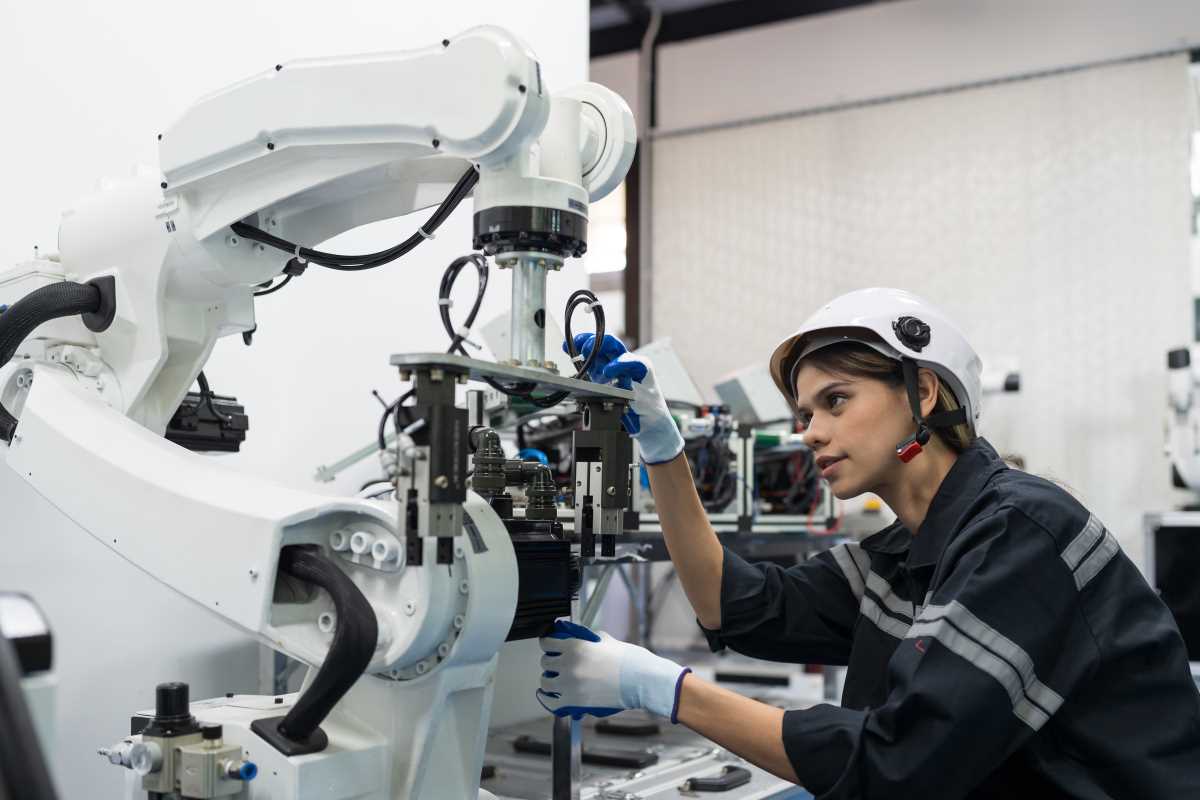The cities of the future are being built today, and they are designed to be "smart." This means using technology to make urban life more efficient, sustainable, and enjoyable. At the very heart of this transformation is transportation. Smart cities require more than just roads and subways; they need intelligent, connected, and data-driven transportation networks. For city planners who want to lead this evolution, a general urban planning degree is not enough. An advanced degree in transportation engineering provides the specialized skills needed to design the mobility systems of tomorrow.
What is Smart City Transportation?
Smart city transportation moves beyond traditional traffic management. It is about creating a seamless, integrated network that uses data and technology to improve how people and goods move through a city. This involves connecting everything from traffic signals and public transit to autonomous vehicles and bike-share programs into one intelligent system. The goal is to reduce congestion, improve air quality, increase safety, and provide citizens with more convenient and reliable mobility options.
This field combines civil engineering with cutting-edge technology. A smart transportation system might use sensors to monitor traffic flow in real time and adjust signal timing automatically to prevent jams. It could involve an app that allows a commuter to plan a trip using a combination of a bus, a scooter, and a ride-sharing service, all paid for with a single transaction. It is the application of data science, artificial intelligence, and the Internet of Things (IoT) to solve some of the oldest problems of urban life.
Why Planners Need Advanced Engineering Skills
City planners have always been responsible for the big-picture vision of a city's layout and growth. However, the rise of smart cities requires them to have a much deeper technical understanding of transportation systems. An advanced degree in transportation engineering provides this crucial knowledge, bridging the gap between high-level planning and on-the-ground engineering reality.
These programs teach you the quantitative skills necessary to design and analyze modern mobility networks. You learn how to use sophisticated software to model traffic flow and simulate the impact of new infrastructure, such as a dedicated bus lane or a network of autonomous shuttles. You gain an understanding of traffic signal control, intelligent transportation systems (ITS), and the data analytics required to make sense of the vast amounts of information generated by a smart city. This technical expertise allows a planner to create visions that are feasible, data-driven, and effective.
Key Skills for Smart City Transportation Planners
- Traffic Flow Theory: Understanding the mathematical principles that govern how vehicles move on a network.
- Transportation Demand Modeling: Using software to predict how people will travel and how changes to the network will affect their behavior.
- Intelligent Transportation Systems (ITS): Knowledge of the technologies like sensors, cameras, and communication networks that make a transportation system "smart."
- Data Analytics and Visualization: The ability to analyze large datasets from traffic sensors and GPS to identify patterns and make informed decisions.
- Public Transit Operations: Understanding how to design and manage efficient and equitable bus and rail systems.
Top Graduate Programs for Smart City Planners
Several universities are at the forefront of transportation engineering and offer programs that are perfectly suited for aspiring smart city leaders. These programs combine rigorous engineering coursework with a focus on policy, data, and emerging technologies.
University of California, Berkeley - M.S. in Civil and Environmental Engineering (Transportation Engineering)
Berkeley's program is a global leader, housed within a university known for its innovation. The curriculum is incredibly strong in traffic operations, transportation economics, and public transit systems. Students have access to the university's renowned Institute of Transportation Studies (ITS), a major research center that works on cutting-edge projects related to autonomous vehicles and sustainable mobility.
Georgia Institute of Technology - M.S. in Civil Engineering (Transportation Systems Engineering)
Georgia Tech offers a program with a heavy emphasis on technology and data analytics. Students learn to use advanced modeling and simulation tools to design and manage complex transportation systems. The program is located in Atlanta, a city that serves as a living laboratory for smart city technologies, providing students with real-world case studies and project opportunities.
The University of Texas at Austin - M.S. in Civil Engineering (Transportation Engineering)
UT Austin is home to the Center for Transportation Research, one of the largest academic transportation research programs in the country. The master's program is known for its strengths in traffic network modeling, travel demand forecasting, and the study of connected and autonomous vehicles. The program has strong ties to both public sector transportation agencies and private tech companies.
What to Expect from a Transportation Engineering Curriculum
An advanced degree program in transportation engineering is designed to provide you with a powerful toolkit for analyzing and designing mobility systems. The curriculum is quantitative and highly analytical.
- Your core courses will cover the fundamentals of traffic engineering, including highway capacity analysis and traffic signal timing.
- You will learn the science behind why traffic jams form and the engineering techniques used to prevent them.
- Transportation planning courses will teach you the four-step model used to forecast future travel demand.
- A course in public transportation will cover the logistics of designing bus routes and rail schedules to serve a community effectively.
- You will take courses in transportation data science, where you will learn to use programming languages to analyze real-world traffic data.
- You will also study Intelligent Transportation Systems (ITS), learning about the hardware and software that make up the backbone of a smart city's mobility network.
- Many programs conclude with a capstone project.
Career paths at the Intersection of Planning and Engineering
A master's degree in transportation engineering opens up exciting and influential career paths for those with a passion for city planning. You become a highly valuable professional who can speak both the language of urban design and the language of quantitative engineering.
In-Demand Roles for Graduates
- Smart Mobility Planner: A role within a city's planning or transportation department focused specifically on implementing new technologies such as autonomous shuttles, mobility-as-a-service (MaaS) platforms, and smart parking systems.
- Transportation Technology Consultant: Working for a private consulting firm, you would advise cities around the world on how to design and implement their smart transportation strategies.
- Public Transit Analyst: A data-heavy role where you would use analytics to optimize bus routes, improve service reliability, and plan for future transit expansions.
- Transportation Modeler: A highly technical role where you build and maintain the complex computer models that cities use to predict the impact of new developments and infrastructure projects.
 (Image via
(Image via





